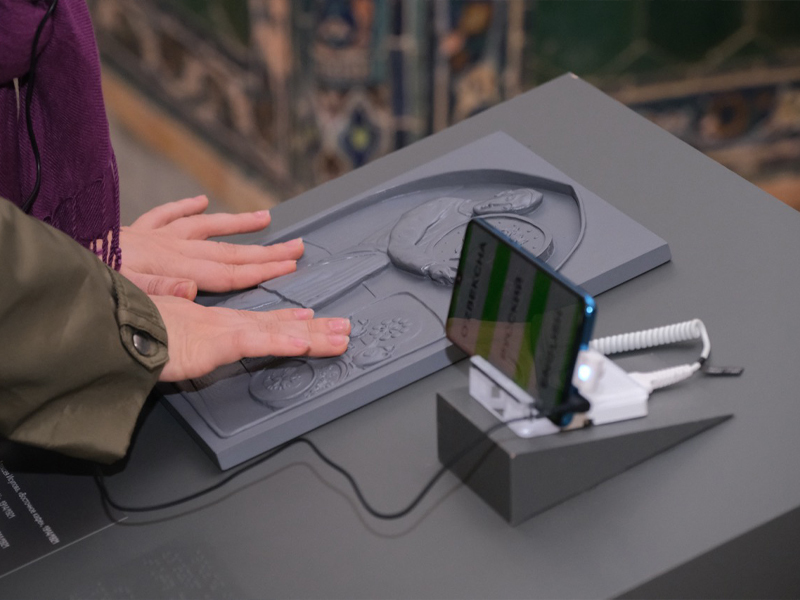In 2019, the Foundation initiated and organized the first international charity race in the history of Uzbekistan: the Samarkand Half Marathon. The goal of the project was to draw public attention to the problem of inclusion and the accessibility of cultural objects for people with disabilities. As part of the Samarkand Half Marathon, the first-ever tactile exhibition was organized, which became available to blind and visually-impaired people thanks to the technology of audio description.
The Foundation has continued to implement this technology. Together with the partner institute Reacomp, an educational program was organized to train specialists in cultural institutions in the country. In February 2020, the first theatrical performances with audio description were presented. These are just the first steps towards creating an accessible environment in the country's cultural institutions. Further actions include rebuilding the infrastructure around and inside theaters, museums, and other cultural institutions in Uzbekistan.
For many years, social protection of persons with disabilities has not been comprehensively addressed by any of the state bodies. Issues of social protection were transferred to the Ministry of Employment and Labor Relations of the Republic of Uzbekistan, then to the Ministry of Health of the Republic of Uzbekistan. But they were never a priority, since these ministries mainly solved their own specialized tasks. Currently, 12 different ministries and departments are involved in the social protection of persons with disabilities. It is for this reason that an effective state support system for persons with disabilities has not been established in the past period.
According to the Ministry of Health, 710,003 people with disabilities were registered in 2019. Of the 65,197 children with disabilities who must complete secondary education, 13% are not trained, and 18% are home-schooled, which does not ensure their quality of education. Access to sports, cultural, educational and other social organizations that allow them to have meaningful leisure time is not provided for the people belongings to the group with special needs. 90% of cultural institutions are not accessible or capable of including this group.
In 2020, the Art and Culture Development Foundation under the Ministry of Culture of the Republic of Uzbekistan developed a preliminary concept of a normative legal act for the development and implementation of an inclusiveness program in museums of the Republic. In accordance with this document, a grant program for cultural institutions will be announced in 2020. It will create an inclusive infrastructure around and within institutions, as well as train professionals to work with people with disabilities.

